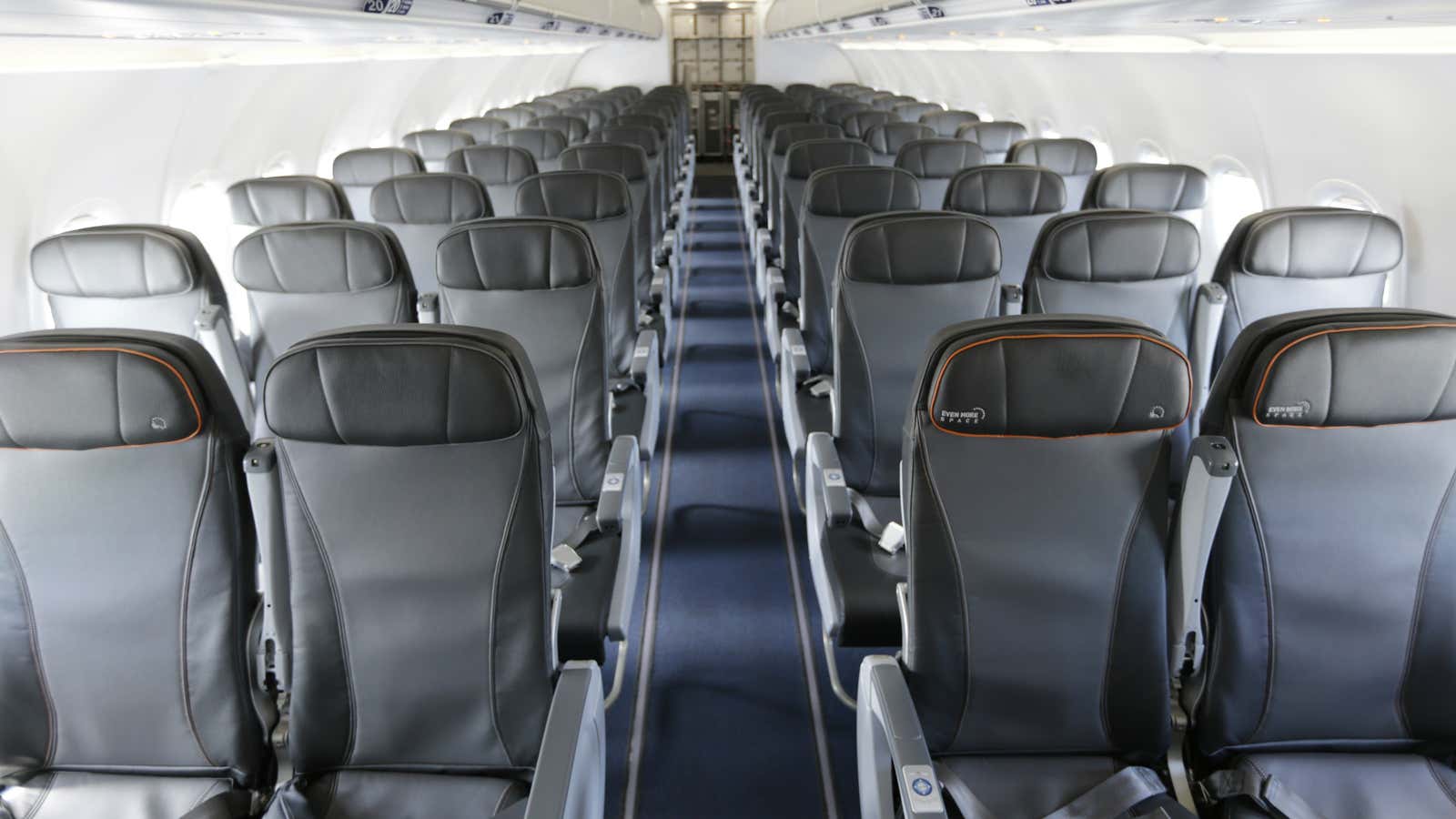In case the viral video of police violently dragging a man off an overbooked United Airlines flight in Chicago didn’t make it clear, let us repeat: Airlines often have more passengers than available seats and some carriers, apparently, aren’t afraid to kick you off.
United said it not have enough room for all its booked passengers because it had to transport four crew members to Louisville for another flight.
United’s fumbling of the situation is one matter. Here’s a look at what overbooking is—and why airlines do it.
Why are there more tickets than seats?
Airlines frequently sell more seats on their flights than the airplane holds, a way to guard against passengers who cancel or somehow fail to make it to the airport. It’s legal, and airlines won’t it abandon the practice anytime soon because they would leave precious pennies on the table when passengers are no-shows. No airline wants to give passengers compensation, so United’s incident also exposes what might be a poorly managed inventory system.
Do I have to get off the airplane?
Yes. There are two ways passengers can be denied boarding: voluntarily and involuntarily. The US Department of Transportation requires airlines to first seek volunteers to take a later flight and carriers will generally offer compensation in the form of a voucher for future travel. If you go for this option, negotiate the terms and make sure the airline tells you if there are any blackout dates to use the voucher. The voucher amount can vary, depending on how many volunteers are needed and how many people are willing to get bumped. If 10 people come forward in hopes of a voucher, you’ll likely be disappointed because there could be more than enough volunteers. That will likely mean not the sweetest of offers.
What if no one wants to take another flight?
This is where airlines get nervous, and passengers should too. Without volunteers, airlines can pick passengers at random to get bumped. They make money when the planes are in the sky, not at the gate, so they’ll want to ensure they don’t hold up the plane. The Department of Transportation and airlines’ contracts of carriage spell out the amount of compensation, which depends on the fare and how long it will be before bumped passenger can fly.
If the airline offers you a new flight that will get you to your destination within an hour of your original arrival time, there is no compensation. If the new flight’s arrival is within one to two hours after the original arrival time, compensation must be at least 200% of the flight cost, but with a limit of $675.
On the Chicago to Louisville flight caught on video, United reportedly offered $800 and two people accepted. Under federal rules, if the substitute flight will get you to your final destination more than two hours later, or if the airline doesn’t make any other travel arrangements, compensation is 400% of the fare ,up to $1,350. United caps compensation at $1,350.
The passenger in the video was reportedly a doctor who refused to be bumped because he had patients scheduled the next day, according to the Courier-Journal.
Following a series of large airline mergers, passengers have fewer carriers to to choose from, an issue that crops up during technical glitches that ground airlines. That means that if passengers are involuntarily bumped but absolutely need to fly (think: a wedding, a funeral, a vital meeting) they have fewer carriers on which to catch a last-minute flight.
Can an airline forcibly remove me?
Yes. Airlines have a low bar for kicking passengers off planes. Any boarding disturbance could delay the flight’s departure, or if an incident escalates in the air, it could force the pilot to divert to another airport, a costly detour.
An airline can remove you from a flight for screaming at passengers, insulting a president’s daughter (yes, really), singing, or even for smelling badly.
Under those rules, the United crew on Sunday generally would be allowed to deem the passenger a security risk merely for his refusal to obey crew instructions. That brings on airport security or the police.
Isn’t there a better way?
Probably. The backlash against United on social media has been swift following the alarming images of the bloodied passenger. Higher compensation to the passengers might have drawn more volunteers, and saved the airline from yet another public-relations black eye like last month’s leggings debacle. Certainly the airline could have afforded to offer more—its profits topped $2 billion last year.
